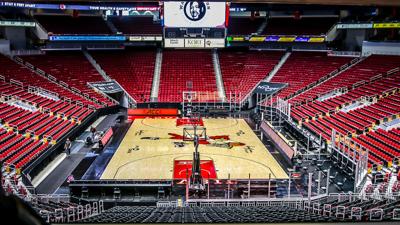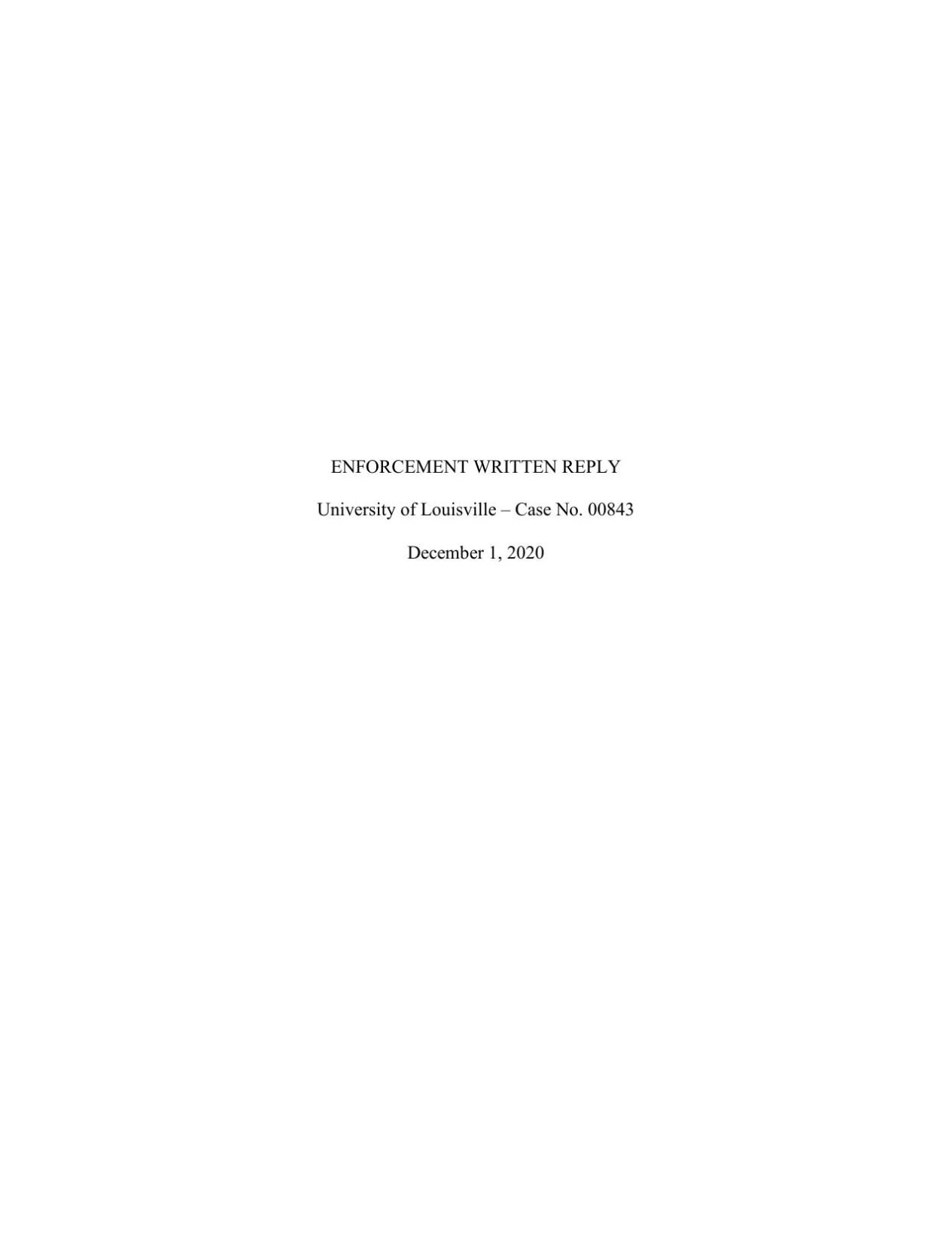LOUISVILLE, Ky. (WDRB) – Responding to the University of Louisville’s arguments that the school is primarily a victim in the scheme of some former adidas executives and others to pay players to attend schools affiliated with the shoe company, NCAA enforcement staff argued otherwise in its written response to the school, while maintaining that it is "unaware of any factual information that warrants a lower penalty range for the institution" in the case.
The so-called “pay for play” scandal broke in 2017 and wound up costing Louisville coach Rick Pitino and athletics director Tom Jurich their jobs. It also could cost U of L in sanctions down the road, given that the school was already on probation when the alleged violations happened.
The school is hoping to avoid major penalties, but the NCAA’s counter-argument, released by the school on Monday in response to an open-records request, is that adidas was a representative of the school’s athletic interests, and was acting on behalf of the university when one of its representatives became involved in a scheme to pay recruit Brian Bowen a sum of $100,000 in exchange for playing for Louisville in college and signing an apparel deal with the shoe company after turning pro.
The response comes from NCAA enforcement staff, which acts basically as a prosecutor. The case eventually will be heard by an infractions committee, or by a committee in the NCAA's new Independent Accountability Resolution Process.
"NCAA Constitution 6.4.2, which is mirrored in Bylaw 13.02.15, clearly states that institutions are responsible for the acts of 'a corporate entity (e.g., apparel or equipment manufacturer)' when 'athletics administration or athletics department staff member has knowledge or should have knowledge' of . . . outlined behaviors," the NCAA response argues.
The enforcement staff also notes that Louisville's own compliance director, John Carns, acknowledged that Adidas was a representative of the school's athletics interests when he testified in the trial of former Adidas executive Jim Gatto.
NCAA enforcement also rejected Louisville's arguments that then-assistant coach Jordan Fair was little more than a bystander during a meeting in which cash payments to a recruit were discussed, and it continues to assert that then-assistant Kenny Johnson made a $1,300 payment to Bowen's family.
Bowen never got to the play for Louisville after the FBI broke up the scheme, resulting in the convictions of three individual on federal fraud charges in late 2018.
In a response to the NCAA's Notice of Allegations, Louisville argued that the NCAA was attempting to hold Louisville responsible for being a victim, and that Adidas could not both be acting on the school's behalf and trying to defraud it at the same time.
As it has done with other schools facing sanctions in this matter, the NCAA disagreed with such reasoning.
Moreover, NCAA enforcement sees little reason for lenience. U of L had argued that prompt response to the matter and subsequent actions should be mitigating factors. Enforcement staff responded: "The institution disputes nearly all allegations detailed in this case and has not promptly acknowledged or accepted responsibility for the violations. Although enforcement does not agree that this mitigating factor applies to the institution, it acknowledges that the institution took corrective measures in response to the violations."
The enforcement staff's reply now moves Louisville's case to a pre-hearing stage, in which the parties come together to determine what, if any, other materials or information is needed prior to a hearing. Neither a traditional hearing before a panel of the NCAA committee on infractions or a hearing panel in its new IARP is strictly set.
U of L has not commented on the latest NCAA communication, received by the university on Dec. 1. It is prohibited by NCAA rule from commenting specifics of the case.
This story will be updated.
Copyright 2020 WDRB Media. All Rights Reserved.


